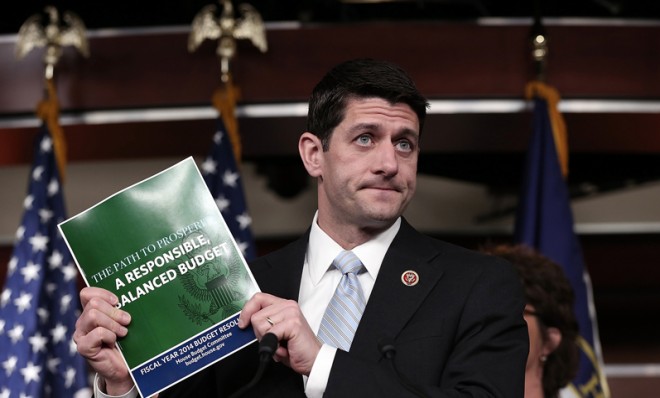Notes On A (GOP) Scandal

On September 14, Deputy National Security Adviser for Strategic Communications Ben Rhodes sent an e-mail to President Obama that has recently caused the hackles of the GOP spin machine to rise substantially. In it, Rhodes said that “there is a ton of wrong information getting out into the public domain from Congress and people who are not particularly informed” and that “we need to have the ability to correct the record, as there are significant…ramifications that would flow from a hardened mis-impression.”
While Rhodes most likely intended to limit his words to the importance of politely presenting the facts (and no, not their carefully re-sculpted, ass-saving impostors) amid congressional investigations into that week’s tragedy at Benghazi, the same could be said about a handful of GOP-driven “issues” making national headlines day after day after day.
It should therefore come as no surprise that it wasn’t Rhodes‘ dogged pursuit of promoting accuracy that inspired the ire of pitchfork-and-torch wielding Benghazi “truthers”; rather, it was the fact that this e-mail struck a fatal blow to yet another factually flimsy theory to which Republicans have held tightly and perpetuated on the Hill and in high definition broadcasts.
Prior to this e-mail’s surfacing courtesy of CNN’s Jake Tapper, its heavily altered “form” was leaked to ABC and presented Rhodes as a man inordinately concerned with fixing Benghazi talking points so as to avoid the uncomfortable discussion of a weak State Department, administration and terrorism-susceptible nation in the thick of a hotly-contested presidential election season. This doctored version of the e-mail, of course, allowed for political opportunists like Dick Cheney (yes, the same Dick Cheney whose administration saw the single largest loss of life from a foreign attack on American soil in our nation’s history) to say that the Benghazi cover-up was “one of the worst incidences, frankly, that [he] can recall in [his] career.”
It turns out that a lot of other Republicans feel that way, too. In a recent Public Policy Polling national poll, 41% of Republicans surveyed said that they considered the Benghazi cover-up to be the “biggest political scandal in American history”. Of this outraged sect, it also turns out that around two-fifths of them don’t know that Benghazi is actually, well, in Libya. So in other words, no; don’t worry about the fact that the so-called smoking gun is little more than a mirage. Hell, don’t even pay attention to the name of the country where your so-called faith in the competency and courageousness of your national leaders died. Just get mad–and stay that way. Outrage always trumps facts, and in today’s GOP, general thinking seems to be that if you shout loud enough and long enough, scandals reign supreme and facts are about as useful as the human appendix.
Take for instance the GOP’s recent boohooing of the IRS targeting various Tea Party organizations in their applications for tax exempt status. With the amount of shrieks and tweets this week’s scandal has received, you might think that nothing like this has ever happened in the history of the United States. Or that, say, reviewing every tax-exemption application to weed out groups that are partisan or political is some arbitrary rule that Congress passed just last week. None of this is to say that selective IRS targeting isn’t worthy of conversation, though; it most certainly is the case. It just so happens, however, that the only time the GOP has ever been interested in forging one is when it’s been their organizations upon which the IRS has set its sights. Says Adam Schiff, a Democrat representative from California who defended the liberal All Saints Episcopal Church in Pasadena from overreaching IRS threats, “I wish there was more GOP interest when I raised the same issue during the Bush administration, where [the IRS] audited a progressive church in my district in what looked like a very selective way…[but] I found only one Republican that would join me in calling for an investigation during the Bush administration.” It goes without saying that as this most recent case of histrionic headlining grabbing courtesy of the GOP develops, so too grows the number of liberal organizations that have also been targeted by the IRS.

But of course, it is the truly sweeping GOP scandal that has been largely forgotten–though mainly because it is one whose effects, were its significance truly embraced, might be fatally damning to whatever shreds of remaining intellectual integrity Republican Party leaders have managed to tuck away over the years. As you might remember (and if you don’t, all the better; it means the ceaseless Benghazi bellowing has been effective), a handful of weeks after the self-inflicted wound that was the sequestration manifested itself in the minds of many middle and working class Americans came the revelation that the so-called scholarly studies that fed the “legitimacy” of the GOP’s deficit reduction craze were complete bunk. That’s right: a nasty cocktail of selective exclusions, unconventional weighting and coding errors courtesy of two Harvard economists were needed to remotely render the Paul Ryan-penned budget less of a reckless, one-way road to ruin and more of a bold, academically sound “Path to Prosperity”.
In spite of this discovery, though, not much has changed. The only scandals that fill evening news are those of planned distraction and mass deception. Power hungry right wingers, perhaps in anticipation of 2016, blather on and on about Benghazi, their party’s singular and undue IRS victimization, and outrage still springs eternal. It is where they are silent, though, to which we should fix our attention. If anywhere, that is where we’ll find the real, substantive issues begging to be brought to light. That is, of course, if we can even be bothered to look for them.









